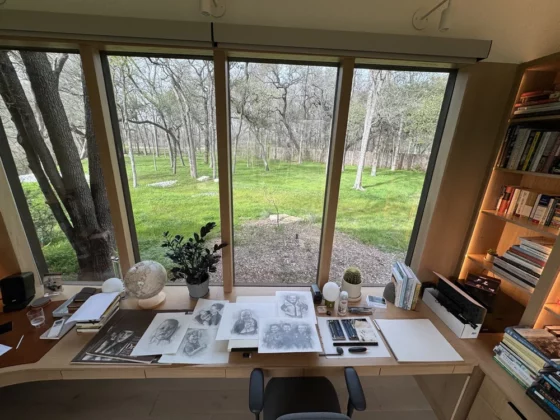Start them young, they say. The youth of today are the leaders of tomorrow, they say. Both maxims are true, both are appliable to the hospitality industry and, luckily, there are a wealth of youthful people already showing executive-style and leadership aptitude.
HOTELS Magazine decided to recognize three—each from a different discipline of the industry, operations, investment, brand—and get their observations on not just what it’s like working in hotels daily and their biggest accomplishments so far, but also advice for those coming behind them and what senior industry executives can learn from the younger generation—and vice versa.

____________________________________________________________________________________________________________
Tyler Pitman, senior director of operations, Ark Hospitality
HOTELS: What initially attracted you to wanting to work in the hospitality industry, and why did you ultimately decide to make a career in it?
Pitman: Funny enough, I stumbled into the hospitality industry. A family friend, who was a food & beverage director with Wyndham Hotels & Resorts, hired me as a dishwasher. As most hoteliers know, there are no rigid titles. You step in wherever needed to ensure guests, owners and team members are taken care of. I worked as a server, front desk agent, in banquets, room service and even dabbled as a cook. This experience lit my fire for the industry.
HOTELS: What has been the most rewarding and challenging part about working on the operations side?
Pitman: The ability to make a positive impact. Seeing a guest’s experience improve because of the efforts put into the day-to-day operations and knowing that the team is supported and working efficiently is incredibly fulfilling. On the challenging side, balancing the demands of different departments and handling unexpected situations, like last-minute changes or high guest expectations.
HOTELS: What can the older generation of hotel industry executives learn from the younger generation and vice versa?
Pitman: The older generation of executives often brings a wealth of experience and a deep understanding of the foundational principles of hospitality. They know how to navigate challenges and maintain operational efficiency and they have seen the industry evolve. What the younger generation brings to the table is a fresh perspective, a better understanding of current trends and a stronger grasp of technology. Younger professionals are often more in tune with digital tools, social media and the expectations of today’s guests, especially in terms of personalization and convenience. On the flip side, the older generation can teach the younger generation the importance of building relationships, handling long-term strategic planning and managing operational challenges that come with experience.
HOTELS: What is your advice to those thinking about a career in hospitality or those just starting out in it?
Pitman: Be open to learning and flexible in your approach. The industry is dynamic and fast-paced, so being adaptable is key. Start by gaining experience in various roles, even if they seem outside your initial plan. You’ll learn a lot by seeing how different departments work together and how each role contributes to the overall guest experience. Don’t be afraid to ask questions, seek mentorship and build relationships. The people you work with will be one of the most rewarding parts of this career. Above all, remember that hospitality is all about serving others and making people feel valued. If you are passionate about helping others and creating memorable experiences, this is a great industry to join.
____________________________________________________________________________________________________________
Jacqueline Rencurrell, director, Turnstone Group
HOTELS: What initially attracted you to wanting to work in the hospitality industry, and why did you ultimately decide to make a career in it?
Rencurrell: From a young age, I showed great interest in two things: real estate and solving puzzles. A close family friend was a builder and any chance to walk on a construction site or tour a new property was eagerly accepted. I later studied architecture at Georgia Tech and worked for the university after graduation coordinating design-build projects; these experiences strengthened my ability to problem solve, and I gained valuable hands-on experience in real estate. At Turnstone, I first had the opportunity to work on entitling residential land and then folded extended-stay hotels into the mix shortly after. Working within this niche field of hospitality brings unique challenges to solve each day. It requires taking calculated risks by assessing markets and making an informed investment analysis about demand, costs and overall viability.
HOTELS: What has been the most rewarding and challenging part about working on the investment side?
Rencurrell: The most rewarding and challenging part of investing in any facet of real estate is finding the right market. The vast number of variables we are constantly contending with only seems to grow each year. Aside from the obvious challenges, such as finding an open market outside of an AOP with clear demand drivers, you are also contending with challenges lurking below the surface, such as high property taxes or insurance that can crush NOI and kill a deal. Even once you find a market that can balance each of these, you have to work through entitlements with municipalities to understand the local ordinances or educate them on the product. The longest (and best) day in my world is the day we close on our construction loan, purchase a new piece of property and give the green light to start construction. Oftentimes that day has been two or three years in the making.
HOTELS: What do you think the older generation of hotel industry executives can learn from the younger generation and vice versa?
Rencurrell: I hope the older generation can learn how eager the younger generation is to work, even if it looks different from the work environment they grew up in. I would also advise them to continue to give the younger generation opportunities to prove themselves. For the new generation, I think they can place more importance on in-person meetings and picking up the phone. We are often quick to send an email or text and forget that we are in a business relationship. A warm friendly voice often goes further. Lastly, the most important lesson is that no one is going to give you the answer. If you want to get ahead, you need to show up to the table with solutions.
HOTELS: What is your advice to those thinking about a career in hospitality or those just starting out in it?
Rencurrell: Work with people who care about quality and customer service; cutting corners is a red flag. For those thinking specifically about working in investing, get comfortable in excel. Soon you will dream about how to make that perfect spreadsheet!
____________________________________________________________________________________________________________
Dominic Ziebert, development analyst, Four Seasons Hotels and Resorts
HOTELS: What initially attracted you to wanting to work in the hospitality industry, and why did you ultimately decide to make a career in it?
Ziebert: I’m passionate about travel, real estate, architecture and urban planning, so hospitality development felt like a natural intersection of those interests. Development offers the unique opportunity to not only shape the built environment but also create meaningful experiences for people. I was drawn to the strategic nature of the work and, over time, I came to appreciate the broader impact hospitality can have—not just on guests, but communities and cities.
HOTELS: What has been the most rewarding and challenging part about working on the brand development side?
Ziebert: The most rewarding part is seeing a project come to life—from early conversations and underwriting to seeing a project open. Being involved in shaping the future of a brand like Four Seasons is fulfilling, but at the same time, there are high expectations. The biggest challenge is ensuring each project not only meets our standards, but also reflects the character of its location and resonates with our guests.
HOTELS: What would you say has been your biggest accomplishment so far—something you are very proud of?
Ziebert: Supporting the broader team on the development of Four Seasons Deer Valley and Four Seasons Puerto Rico has been a career highlight. Both projects are incredibly exciting, but what I’m most proud of is how they strategically strengthen our global portfolio. Deer Valley reinforces our presence in the luxury ski market, while Puerto Rico represents a great opportunity to expand in the Caribbean as a culturally rich destination.
HOTELS: What do you think the older generation of hotel industry executives can learn from the younger generation and vice versa?
Ziebert: Both generations bring collective value. Hotel industry executives bring deep expertise, strategic vision and a commitment to service, which have shaped the foundation of hospitality. As younger generations travel more and influence demand, preferences are shifting toward unique, immersive experiences. Younger professionals offer fresh perspectives on how to meet these evolving expectations.
HOTELS: What is your advice to those thinking about a career in hospitality or just getting started on it?
Ziebert: Hospitality development sits at the intersection of so many disciplines—real estate, architecture and design, finance and investment, operations, food and beverage, sales and marketing and more. You’re not expected to know everything, but you do need to understand how the pieces fit together. My advice would be to rely on subject matter experts, ask questions and don’t hesitate to reach out for help. I’ve found that most people in this industry are generous with their time, and having a solid network in your corner makes it much easier to face challenges head-on.








